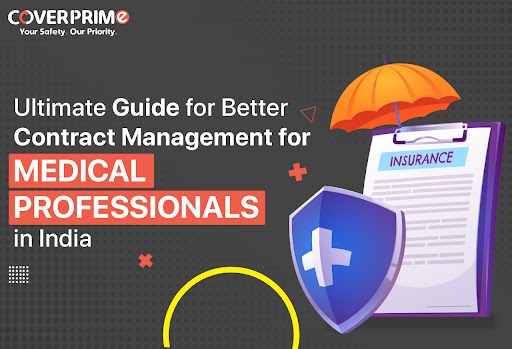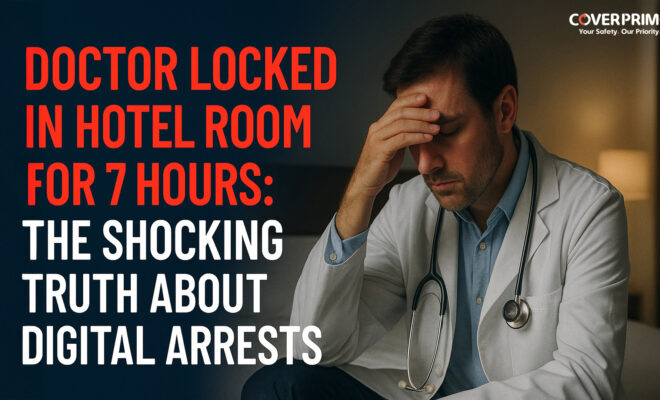How Can Medical Professionals Safeguard Themselves Against Data Protection Liabilities?

Introduction
Data protection liabilities are the legal and financial risks that individuals or organizations face when they fail to secure personal information from unauthorized access, use, or disclosure. These liabilities can arise from various sources, including data breaches, unauthorized access, theft, loss, or misuse of private information.
Medical workers may face data security liabilities if patient information is mishandled or compromised. If a medical professional fails to properly secure patient information, such as by leaving a laptop containing patient data in a public place, they may be held liable if that information is subsequently accessed by an unauthorized third party.
Data security liabilities can result in legal and financial consequences such as penalties, lawsuits, and reputational damage. Data breaches can cause personal harm in some cases, such as identity theft or other kinds of fraud.
To reduce data protection liabilities, individuals and organizations must take steps to protect personal information, such as implementing data protection policies and procedures, training employees on data protection best practices, and responding quickly and effectively to data breaches or other security incidents.
Table of Contents
- The Risk Associated with Data Protection Liabilities for Medical Professionals
- Consequences of Data Protection Liabilities for Medical Professionals.
- How Should Medical Professionals Safeguard Themselves Against Data Protection Liabilities?
The Risks Associated with Data Protection Liabilities for Medical Professionals
Medical professionals may face substantial risks as a result of data protection liabilities, such as:
- Data breaches or other data security failures can tarnish the image of Medical Professionals and their organizations, leading to a loss of confidence among patients, clients, and the general public.
- Professional risks: Data protection liabilities can have a significant impact on medical workers’ professional image, making future employment or contracts difficult to obtain.
- Financial risks: Data breaches can be expensive, necessitating legal fees, compensation for those affected, and the cost of implementing security steps to avoid future breaches.
- Medical workers who break data protection laws and regulations face legal and regulatory repercussions such as fines, legal action, and license revocation.
- Data protection liabilities, such as data loss, inability to access key systems or applications, and the need to rebuild systems and infrastructure, can disrupt medical operations and cause significant operational challenges.
Consequences of Data Protection Liabilities for Medical Professionals
- As a result of data security liabilities, Medical Professionals may experience serious consequences such as:
- If medical personnel are found to be in violation of data security laws and regulations, they may face fines and legal penalties. The severity of the violation determines the severity of the punishment.
- Patients may lose trust in medical experts and organizations if they think their personal information has been mishandled or compromised. This loss of trust can be difficult to overcome and can harm the reputation of both the Medical Professionals and their medical practice.
- Patients or regulatory agencies may sue if a Medical Practitioner is found to be responsible for a data breach or other data security failure. This can be costly, time-consuming, and can cause damage to the reputation of both the Medical Professional’s & his medical practice.
- Data breaches and other data security failures can have severe consequences on the reputation of the Medical Professional & his medical practice. This can result in income and business losses, as well as difficulties attracting new patients and clients.
- Medical professionals who violate data security laws and regulations run the risk of losing their
licensure or accreditation, which can have serious professional and financial ramifications.
Medical workers must take data protection carefully and implement robust data protection policies and procedures to reduce the risk of data breaches and other data protection failures. By doing so, they can protect themselves, their patients, and their medical practice from the consequences of data security liabilities.
How Should Medical Professionals Safeguard Themselves Against Data Protection Liabilities?
To protect themselves from data security liabilities, medical workers should take the following precautions:
- Employee Data Protection: Education Medical professionals should teach their employees about data protection and privacy policies and procedures. This involves ongoing training on best practices for protecting patient data and responding to data breaches.
- Protecting Patient Data: To protect patient information, medical personnel should use secure communication methods and ensure that electronic devices are password-protected and encrypted. They should also limit access to patient info to those who truly need it.
- Understanding & Following Relevant Laws & Regulations: Medical Professionals must be familiar with and follow the data protection laws and regulations in their jurisdiction. They should also keep up to speed on any changes or updates to the rules.
- Obtaining Informed Consent: Medical workers should obtain informed consent from patients before collecting, using, or disclosing their personal information. Explain why the data is being gathered, who will have access to it, and how it will be used.
- Implementing Data Breach Response Plans: In the case of a data breach involving patient information, medical personnel should have a data breach response plan in place. This plan should include procedures for informing patients and regulatory authorities, as well as steps to correct the problem.
By taking these precautions, medical workers can help protect themselves from data protection liabilities while also protecting the privacy and confidentiality of their patients.
FAQs
Q1. What is the meaning of data protection liabilities?
Ans. Data protection liabilities are the legal and financial risks that individuals or organizations face when they fail to secure personal information from unauthorized access, use, or disclosure. These liabilities can arise from various sources, including data breaches, unauthorized access, theft, loss, or misuse of private information.
Q2. What can data protection liabilities lead to?
Ans. Data security liabilities can result in legal and financial consequences such as penalties, lawsuits, and reputational damage. Data breaches can cause personal harm in some cases, such as identity theft or other kinds of fraud.
Q3. How can someone reduce the risk of data protection liabilities?
Ans. To reduce data protection liabilities, individuals and organizations must take steps to protect personal information, such as implementing data protection policies and procedures, training employees on data protection best practices, and responding quickly and effectively to data breaches or other security incidents.
Q4. What can be the consequences for the medical workers who break the data protection laws?
Ans. Medical workers who break data protection laws and regulations face legal and regulatory repercussions such as fines, legal action, and license revocation.
Q5. How can someone deal with medical data breaches?
Ans. In the case of a data breach involving patient information, medical personnel should have a data breach response plan in place. This plan should include procedures for informing patients and regulatory authorities, as well as steps to correct the problem.














